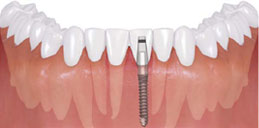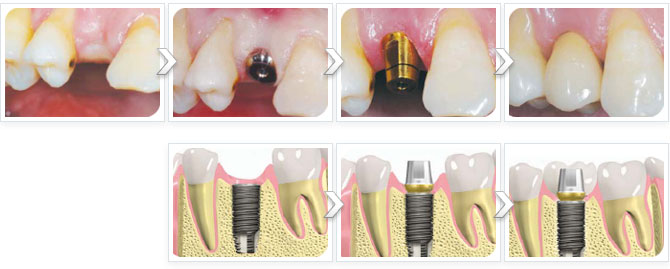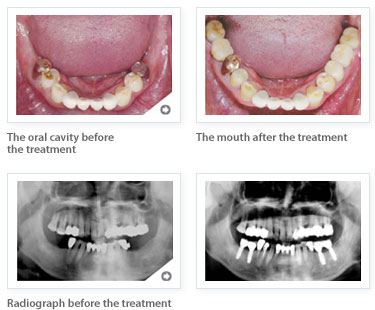Losing one or more teeth can have a significant impact on your quality of life. It can affect your smile, your ability to chew and even change how you look.
If you’re looking for a permanent solution to missing teeth, dental implant restoration may be the answer. With implant restorations, you no longer have to suffer the effects of missing teeth due to aging, periodontal disease, decay or an accident. You can regain the beautiful smile you once had and feel more confident about yourself.


Facts About Dental Implant Restorations
1. Implants are durable and long-lasting. The implant will fuse to your jawbone so they won’t become loose even after many years of use. In fact, if properly maintained, it can last a lifetime.
2. Implants look and feel very natural. Unlike dentures, implants are anchored and fused to the bone. Over time, you will even forget that they are there. In addition, they are also designed to mimic the look of your natural teeth so no one will ever know you’re using restorations.
3. Implants are the healthy solution to teeth loss. There’s no need to reduce the structure of neighboring teeth so an implant doesn’t damage healthy teeth. With dental implants, you will have a better-looking and more confident smile, and more importantly, you’ll be able to chew your food properly and utter your words clearly.
The Procedure During the procedure, the dentist will make an incision on the affected site and insert the implant inside where it will fuse with the jawbone. This process takes 2-6 months, after which the implant will replace the old root and serve as an anchor for the dental crown/artificial tooth. Then, your replacement tooth will be designed, shaped and measured. Once it is ready, you will be scheduled for an appointment so that the new tooth can be attached to the implant. You will be able to chew and speak normally after the procedure is done.

For those who are missing several teeth, your dentist will recommend an implant supported bridge. If you’re missing a tooth or several teeth and you are looking for a permanent solution.
Call our office at (239) 939-7070 so we can assess your teeth and determine if you’re a suitable candidate for dental implant restorations


What Are the Advantages of Dental Implants?
There are many advantages to dental implants, including: Improved appearance. Dental implants look and feel like your own teeth. And because they are designed to fuse with bone, they become permanent. Improved speech. With poor-fitting dentures, the teeth can slip within the mouth causing you to mumble or slur your words.
Dental implants allow you to speak without the worry that teeth might slip. Improved comfort. Because they become part of you, implants eliminate the discomfort of removable dentures. Easier eating. Sliding dentures can make chewing difficult. Dental implants function like your own teeth, allowing you to eat your favorite foods with confidence and without pain. Improved self-esteem.
Dental implants can give you back your smile and help you feel better about yourself. Improved oral health. Dental implants don't require reducing other teeth, as a tooth-supported bridge does. Because nearby teeth are not altered to support the implant, more of your own teeth are left intact, improving long-term oral health. Individual implants also allow easier access between teeth, improving oral hygiene. Durability. Implants are very durable and will last many years.
With good care, many implants last a lifetime. Convenience. Removable dentures are just that; removable. Dental implants eliminate the embarrassing inconvenience of removing dentures, as well as the need for messy adhesives to keep them in place.
Can Anyone Get Dental Implants?
In most cases, anyone healthy enough to undergo a routine dental extraction or oral surgery can be considered for a dental implant. Patients should have healthy gums and enough bone to hold the implant. They also must be committed to good oral hygiene and regular dental visits. Heavy smokers, people suffering from uncontrolled chronic disorders -- such as diabetes or heart disease -- or patients who have had radiation therapy to the head/neck area need to be evaluated on an individual basis.
If you are considering implants, talk to your dentist to see if they are right for you. Does Insurance Cover the Cost of Dental Implants? In general, dental implants are not covered by dental insurance at this time. Coverage under your medical plan may be possible, depending on the insurance plan and/or cause of tooth loss. Detailed questions about your individual needs and how they relate to insurance should be discussed with your dentist and insurance provider.
The first step in the dental implant process is the development of an individualized treatment plan. The plan addresses your specific needs and is prepared by a team of professionals who are specially trained and experienced in oral surgery and restorative dentistry. This team approach provides coordinated care based on the implant option that is best for you.


